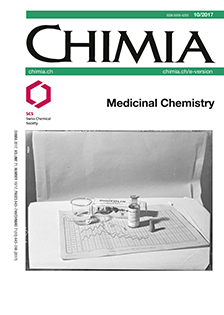Targeted Delivery of Cytotoxic Drugs: Challenges, Opportunities and New Developments
DOI:
https://doi.org/10.2533/chimia.2017.712Keywords:
Antibody–drug conjugates, Drug delivery, Small molecule–drug conjugatesAbstract
Cytotoxic drugs, which are commonly used for the pharmacotherapy of many forms of cancer, often cause substantial toxicity to the patient without being able to induce long-lasting remissions. Ligands specific to accessible tumor-associated targets, capable of selective localization at the neoplastic site, may facilitate the preferential delivery of anti-cancer drugs, boosting activity and helping spare normal organs. In this article, we present a critical analysis of the limitation of conventional anti-cancer drugs and we contrast monoclonal antibodies and small organic ligands, as vehicles for pharmacodelivery applications.Downloads
Published
2017-10-25
Issue
Section
Scientific Articles
License
Copyright (c) 2017 Swiss Chemical Society

This work is licensed under a Creative Commons Attribution-NonCommercial 4.0 International License.
How to Cite
[1]
S. Cazzamalli, A. D. Corso, D. Neri, Chimia 2017, 71, 712, DOI: 10.2533/chimia.2017.712.







